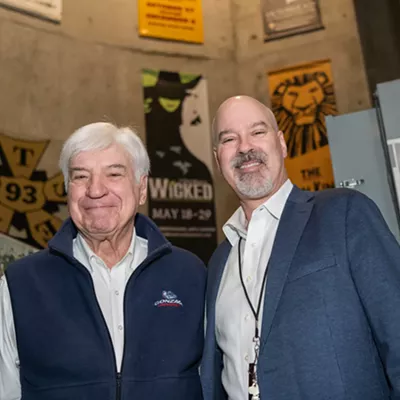Some say this is the golden age of television, with shows like The Good Wife and House of Cards, along with new services that allow you to watch just about any of it on any screen at any time. And it's all because we are ponying up more and more for cable, Internet, Netflix, etc. The shows are addictive, and enough people continue to pay for it. But for how long?
Get ready, because Comcast — already the largest media company on the planet, and looking to get even more monopoly-ish by taking over Time Warner Cable — may slap a pay meter on your Internet usage sometime soon. And other new service fees are on the way thanks to a recent FCC ruling allowing "variable pricing."
Could greed end our golden age? Programmers like CBS and A&E are at the mercy of Comcast, because it controls more and more of the broadband road over which their shows are increasingly delivered. Even Netflix CEO Reed Hastings, nervous over being at the mercy of reliable Internet connections, told the New Yorker that, "The future is broadband." If you own the broadband road, you get to set the toll.
The networks and Comcast will make peace — by passing along higher costs to the rest of us. And don't expect better service with those higher prices. Despite promises made a decade ago, when Congress deregulated the high-speed Internet business, America still has some of the world's most expensive and slowest broadband, according to the New America Foundation.
If this was just about getting Scandal to download faster, it wouldn't be so urgent. But Comcast also provides the Internet connection for businesses in America's biggest cities. The Internet is the world's economic playing field, and we'll be held back if we don't push for faster speeds and greater access.
It's like when America needed electricity, starting in the 1880s. Trouble was, private firms wanted to own it and put profits first. Uncle Sam stepped in, and electricity became a regulated — and, in many places, a publicly owned — utility. As a result, America prospered.
Susan Crawford, author of the recent study of the industry, Captive Audience, thinks the parallels are apt: "High-speed wired connections are now infrastructure, just like bridges, roads and water."
Comcast's expansion now goes to the FCC; the key criterion is whether it benefits the public interest. Putting our broadband future in fewer hands does not serve our interest. Still, this deal seems destined for FCC approval. When that happens, we can only hope for new technology to bring much-needed competition — or for another behemoth (Google is already dabbling) to build us some new broadband roads. ♦

























